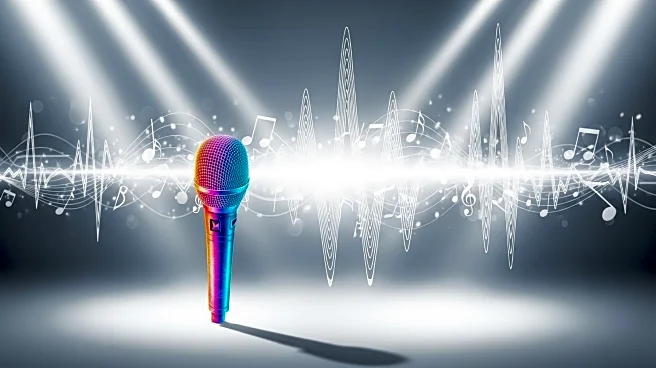What's Happening?
Russia has reintroduced the Intervision Song Contest, a Soviet-era music competition, as a response to its exclusion from the Eurovision Song Contest following its invasion of Ukraine. The event, set to take place in Moscow, will feature 23 artists from around the world, including a representative from the United States. The contest aims to showcase a diverse range of musical styles, from Belarusian pop to Colombian folk and Vietnamese rap. Russian Foreign Minister Sergey Lavrov emphasized the contest's role in promoting a positive image of Russia globally. The Intervision Song Contest, originally held between 1965 and 1980, was intended to foster East-West cooperation in music and television. The current iteration seeks to attract a global audience, offering a top prize of 30 million rubles (approximately $360,000).
Why It's Important?
The revival of the Intervision Song Contest highlights Russia's efforts to assert its cultural influence on the global stage amidst geopolitical tensions. By including artists from various countries, including the U.S., Russia aims to project a more inclusive and diverse image. This move can be seen as an exercise in soft power, allowing Russia to engage with international audiences through cultural diplomacy. The contest also reflects Russia's attempt to counteract its isolation from Western cultural platforms like Eurovision, which has been a significant venue for cultural exchange and diplomacy. The participation of artists with differing political and cultural backgrounds, such as the U.S. representative Vassy, who supports LGBTQ rights, contrasts with Russia's conservative stance, adding layers of complexity to the event's cultural narrative.
What's Next?
The Intervision Song Contest is expected to draw significant attention, both for its cultural offerings and its geopolitical implications. The event's success could lead to its establishment as a recurring international music competition, potentially challenging Eurovision's dominance. Observers will be watching to see how the contest is received by global audiences and whether it can effectively serve as a platform for cultural exchange. Additionally, the participation of artists with diverse political views may spark discussions on the role of music in bridging cultural and ideological divides.
Beyond the Headlines
The Intervision Song Contest's revival raises questions about the use of cultural events as tools for political messaging. While the contest aims to promote cultural diversity, it also serves as a platform for Russia to assert its national identity and values. The inclusion of artists like Shaman, who supports Russian nationalism, alongside those like Vassy, who advocate for LGBTQ rights, highlights the contest's potential to become a battleground for cultural and ideological expression. This dynamic underscores the broader tensions between Russia's domestic policies and its international cultural ambitions.








